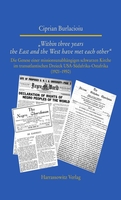|
|
more titles of the subject:
Download:
Please note: With adding digital Products to your cart
the payment will be handled via PayPal. The download will be provided after the payment is confirmed. Die African Orthodox Church ist ein Musterbeispiel früher religiöser Globalisierung jenseits westlich-missionarischer Kommunikationsnetzwerke. Im Jahr 1921 in New York gegründet, breitete sich diese schwarze missionsunabhängige Kirche rasch bis nach Südafrika, Ostafrika und punktuell sogar bis nach Westafrika aus. Diese schnelle Ausbreitung war nicht das Ergebnis gezielter Missionsarbeit. Bekannt wurde die African Orthodox Church in Afrika vielmehr durch die Berichterstattung afroamerikanischer Journale. Während sie von der Typologie her zur sogenannten äthiopistischen Bewegung gehört, definierte sie sich selbst durch den – zunächst eher imaginären als realen – Bezug auf die östliche Orthodoxie.
Die vorliegende Studie ist die erste monografische Untersuchung der African Orthodox Church als einer transkontinentalen Bewegung. Sie ist von Interesse für Christentumshistoriker, Religions- und Ökumenewissenschaftler, Globalisierungshistoriker und Studierende unterschiedlicher Regional- und Kulturwissenschaften. The African Orthodox Church is a prime example of religious globalization beyond western missionary communication networks. This black independent church was founded in New York in 1921 and spread rapidly as far as South Africa, East Africa, and even to select areas of West Africa. This quick expansion was not the result of organized mission work. Rather, the church became known in Africa through reporting in African American journal publications. Typologically, the African Orthodox Church belongs to the movement called Ethiopianism. Yet, the Church defined itself in relation to the Eastern Orthodox tradition, although this connection was initially more an imaginary notion than a real one. The present study is the first monographic analysis of the African Orthodox Church as a transcontinental movement. The work is of interest to historians of Christianity and Globalization, academics in the fields of Religious Studies and Ecumenism, as well as to students of various Area and Cultural Studies. |
|||||||||||||||||||||||||||||||||||||||||






